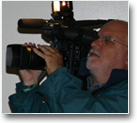
 |
  Trent University Digs Oshawa’s HistoryFOR IMMEDIATE RELEASE New two-week anthropology course at Trent Oshawa offers archaeological field-work and lab experience Wednesday, April 27, 2011, Oshawa Trent University is offering a new field-course in anthropology that will feature a two-week archaeological dig on the waterfront in Oshawa, followed by lab work, in a partnership between Trent University Oshawa and the Oshawa Community Museum, August 23 to September 3, 2011. “Trent University and the Oshawa Museum are certainly digging up something and that something is Oshawa’s timeless history,” said Oshawa mayor John Henry. “Historical Henry House at our waterfront, my home away from home, will be the site of much needed and economical hands-on field-work experience for Trent University’s anthropology students right here in our community. This is an exciting initiative to get a glimpse of where we were and where we are now, understanding our past as we move forward into an exciting future.” Anthropology professor Dr. Helen Haines recognized the need in the Oshawa community for a course that offers hands-on field-work experience to students who are working towards careers in cultural heritage. “There is a pool of students in the Oshawa area who require field-experience, but up until recently there was no project in the Oshawa area,” explained Professor Haines. “A lot of adults and parents who are working full-time while upgrading their skills do not have the option of going away for considerable periods of time to conduct field work. This course addresses their need for hands-on archaeological experience, in an economical way.” When Prof. Haines called the Oshawa Community Museum about the possibility of a dig, museum executive director Laura Suchan responded, “When can you get here?” “It’s all about bringing people together with the same passion,” said Ms. Suchan. “We were just looking for an opportunity like this, having always wanted to dig in this location, to learn more about what life was like down at the waterfront. The whole idea of introducing historical archaeology to the Oshawa area, for the benefit of students, visitors and residents, is very exciting. The past is really important and we need to share and protect this history.” The dig will take place at the historic Henry House, one of three houses sitting on original foundations along the lakeshore that were built between 1835 and 1850. Students enrolled in the course will develop skills in surveying, identifying occupations such as wells, garbage dumps and middens, and learning how digs can literally unearth stories. “When people left their homesteads, sometimes they would “foul the wells” by throwing objects into them,” explained Prof. Haines. “Nice cold water over time makes for great preservation,” she added. “Information builds over time and goes beyond historical photos or written accounts. Digs offer stories of things not said - things that people didn’t think of saying or keeping records of.” Students will dig for two weeks and then spend the fall term working in the laboratory in Oshawa, learning “post-dig” artefact processing and analysis. All artefacts recovered will be given to the museum and lectures on accessioning and other museum functions will be provided by the Oshawa Community Museum curator. Using the Museum’s systems, students’ work will contribute to the museum collection while generating more in-depth understanding of local history. Visit: trentu.ca/oshawa. For more information, please contact: Helen Haines, assistant professor, Anthropology, Trent University Oshawa Thornton Road Campus 416-209-2028, helenhaines@trentu.ca Laura Suchan, executive director, Oshawa Museum, 905-436-7624 x 104, director@oshawamuseum.org |
































